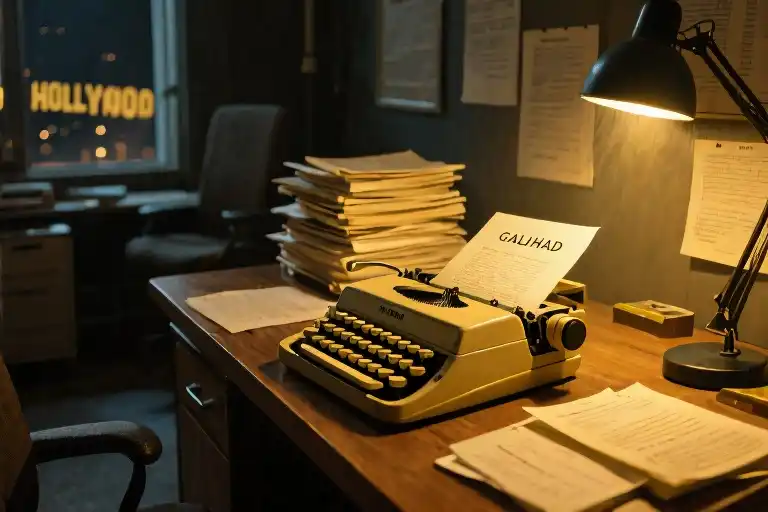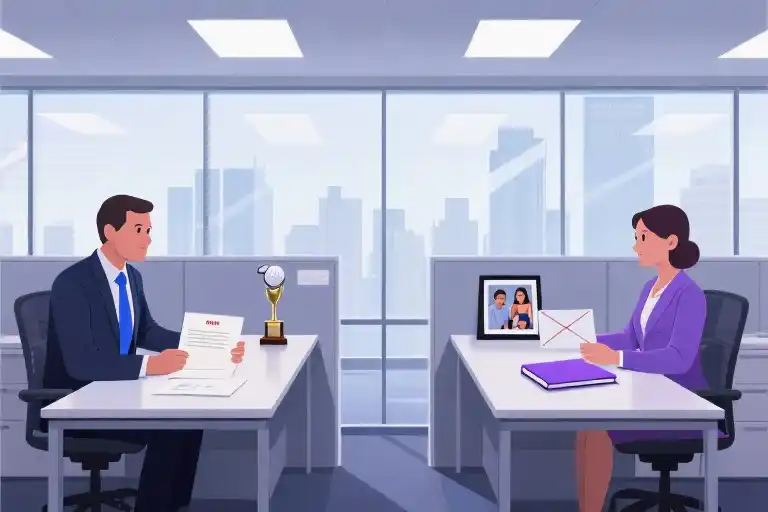The moment you realize the company culture isn’t what you expected often comes too late – after you’ve already accepted the offer, relocated your life, and settled into a routine. That sinking feeling when colleagues exchange knowing glances after the CEO’s ‘we’re like a family’ speech. The quiet dread when your manager casually mentions weekend work during your third week. These aren’t just minor adjustments; they’re fundamental mismatches that could have been uncovered during the interview process.
Interviews work both ways. While companies assess whether you’re the right fit for them, you’re simultaneously evaluating whether they’re the right fit for you. The questions you ask carry equal weight to the answers you provide. Yet most candidates spend hours rehearsing responses while barely preparing any meaningful questions beyond ‘What’s the salary range?’
This isn’t about gaming the system or performing interview theater. Thoughtful questions serve three concrete purposes: they reveal whether you’ll thrive in this environment, demonstrate your professional maturity, and cut through polished recruitment narratives to uncover workplace realities. The right inquiries transform interviews from interrogations into genuine conversations about mutual fit.
What follows isn’t just another list of interview questions. It’s a framework for strategic inquiry, organized to help you progressively uncover the truth about company culture, management approaches, daily work rhythms, and growth opportunities. Each category builds on the last, moving from broad organizational values to specific team dynamics. More importantly, you’ll learn how to interpret responses – the pauses, the overly rehearsed lines, the unexpected enthusiasms that often tell more than the actual words.
Consider this your antidote to post-hire regret. These questions won’t guarantee perfect alignment, but they’ll surface the red flags and green lights that most candidates miss in their eagerness to impress. Because finding the right role isn’t about landing any job – it’s about discovering the one where you won’t dread Monday mornings six months from now.
Evaluating Company Culture and Values
The questions you ask about company culture during an interview reveal more than just corporate buzzwords – they uncover whether you’ll thrive in this environment or spend lunch breaks updating your resume. Cultural fit accounts for nearly 40% of workplace satisfaction, yet most candidates settle for vague descriptions about “collaborative environments” and “fast-paced teams.”
Essential Culture Questions
- “How would you describe the unspoken rules that newcomers need to learn quickly?”
- Why it works: Reveals implicit norms beyond the handbook
- Warning sign: Answers like “We don’t really have rules” suggest chaotic management
- “Can you share a recent decision that perfectly aligned with company values?”
- Why it works: Tests whether values guide actual behavior
- Warning sign: Long pauses or generic examples indicate values are just wall decor
- “What happens when someone challenges the status quo here?”
- Why it works: Uncovers innovation tolerance and psychological safety
- Pro tip: Listen for whether they describe consequences or celebrations
- “How does leadership communicate difficult decisions to the team?”
- Why it works: Exposes transparency levels and trust dynamics
- Green flag: Specific examples of two-way communication channels
- “What’s one cultural aspect you hope to change in the next year?”
- Why it works: Reveals self-awareness and growth mindset
- Bonus: Shows you’re thinking long-term about contributing
Decoding the Responses
When interviewers say “We work hard and play hard,” translate this as potential burnout culture. If they describe monthly team-building events but can’t recall the last one, the culture might exist only in PowerPoints. Authentic cultural descriptions include:
- Specific stories about conflict resolution
- Examples of values influencing promotions/firings
- Candid acknowledgments of weaknesses
One engineering manager shared during an interview: “Our ‘move fast’ value sometimes creates technical debt – we’re working on better sprint planning.” This honest answer revealed more about their culture than any polished mission statement.
Transitioning to Management Style
Culture sets the stage, but your direct manager writes the daily script. Once you’ve gauged the broader environment, pivot to understanding how teams actually operate with questions like…
Understanding Management Style and Career Growth
The way a company approaches management and professional development often determines whether you’ll thrive or merely survive in a role. This section isn’t about finding the ‘right answers’ – it’s about uncovering the truth behind corporate policies and individual leadership approaches.
Questions for HR vs. Direct Managers
Human Resources professionals and your potential future manager will give you different perspectives. With HR, focus on structural aspects:
Could you walk me through the typical career progression for someone in this role?
This reveals whether advancement is based on transparent criteria or subjective judgments. Listen for specifics – ’18-24 month timeline’ beats ‘when you’re ready.’
For the person who might become your supervisor, probe their personal philosophy:
How do you typically support team members who want to develop new skills?
The difference between ‘we have a learning budget’ and ‘let me tell you how I mentored Carlos last quarter’ speaks volumes.
Going Beyond Surface Answers
When they mention ‘annual reviews,’ counter with:
Could you share how feedback flows between formal evaluation periods?
This exposes whether growth happens through ongoing dialogue or bureaucratic checkbox exercises.
If they say ‘we promote from within,’ ask:
What recent example makes you particularly proud of your team’s development?
Concrete stories reveal more than policy statements. Watch for their enthusiasm – or lack thereof – when describing team successes.
Reading Between the Lines
Certain responses should make you pause:
- ‘We’re like a family’ (often means blurred boundaries)
- ‘You’ll have lots of autonomy’ (could signal lack of support)
- ‘Fast-paced environment’ (frequently implies unrealistic expectations)
Notice what they emphasize repeatedly. If every example involves evening emails or weekend work, you’ve learned something critical.
Transitioning to Daily Realities
Understanding management approaches sets the stage for your next line of inquiry. Once you grasp how decisions get made and careers advance, you’ll want to explore what actually fills the hours between those milestones – which leads naturally to questions about the day-to-day experience of the role.
Understanding Day-to-Day Realities and Team Dynamics
The job description only tells half the story. What really matters is understanding how the work actually gets done – the unspoken rhythms, the collaboration patterns, the space between the bullet points on that HR document. This is where many candidates stumble, accepting vague answers about ‘teamwork’ and ‘flexibility’ without digging deeper.
Start with questions that reveal concrete details rather than abstract concepts. Instead of asking ‘What are the main responsibilities?’ try ‘Could you walk me through what this role accomplished last quarter?’ This subtle shift forces specificity. Listen for whether the response focuses on individual achievements or team efforts – it reveals much about workplace values.
Pay particular attention to questions about time allocation. ‘How does the team typically divide time between meetings and focused work?’ exposes whether you’ll spend your days in back-to-back Zoom calls. If they mention ‘flexible hours,’ follow up with ‘When was the last time someone took advantage of that flexibility?’ The hesitation (or lack thereof) before answering often speaks volumes.
Team chemistry questions work best when personalized. Rather than the generic ‘How would you describe the team culture?’ ask ‘What’s one thing new team members often need to adjust to?’ The answer might reveal everything from a fast-paced environment to unspoken communication norms. Notice if the interviewer smiles when describing the team or chooses neutral language – these nonverbal cues matter.
For roles requiring cross-functional collaboration, drill into process details. ‘When this team needs something from marketing/engineering/leadership, what does that conversation typically look like?’ exposes whether you’ll be navigating bureaucratic hurdles or working with responsive partners. The phrase ‘we’re still optimizing those workflows’ usually translates to ‘prepare for frustration.’
Project-specific questions serve two purposes: they demonstrate your research while uncovering operational truths. ‘I saw the announcement about [current initiative] – how would this role contribute to that effort?’ Watch whether the response focuses on execution (‘You’d be building the reports’) or strategy (‘You’d help shape which metrics we track’). This distinction signals how much ownership you’ll truly have.
The best questions often come from listening between the lines. When an interviewer mentions ‘fast-paced environment,’ that’s your cue to ask ‘How does the team handle priorities when everything feels urgent?’ Their answer will show whether they have systems for triage or just expect perpetual heroics.
End this section by bridging to the interviewer’s personal experience: ‘These operational details help me picture the day-to-day. To make it even more concrete, could you share what surprised you most when you first joined the team?’ This creates a natural transition while inviting authentic perspective.
Getting the Insider Perspective from Your Interviewer
When the conversation turns to “Do you have any questions for us?”, most candidates focus on role specifics or company policies. But some of the most revealing answers come from questions that invite your interviewer to share their personal experience. These informal yet strategic questions serve a dual purpose: they humanize the interaction while giving you unfiltered insights about workplace realities.
Start with open-ended invitations like “What surprised you most when you joined this team?” or “What’s one thing you wish you’d known before taking this role?” The phrasing matters – avoid yes/no questions and opt for prompts that require storytelling. Watch for nonverbal cues when they respond. A quick smile while describing mentorship opportunities carries more weight than a rehearsed answer about training programs.
Consider asking about challenges: “What’s been your biggest obstacle in making an impact here?” The response (or hesitation) often reveals more about company culture than any mission statement. If they deflect with corporate speak, try following up with “Could you share a specific example?”
Pay equal attention to what they don’t say. When asked “What keeps you here?”, an immediate response about great colleagues suggests strong team dynamics, while a pause followed by “competitive benefits” might indicate deeper cultural issues. The most telling answers often come from simple questions like “How would you describe the energy of your team on a typical Wednesday afternoon?”
For leadership roles, try “What’s something your team accomplished that made you particularly proud this year?” This reveals management priorities and what success looks like in their eyes. With executives, “When you think about the company’s future, what keeps you up at night?” can uncover strategic challenges.
Remember to adapt questions based on who’s interviewing you. Ask HR about onboarding experiences (“What do new hires typically find most challenging in their first month?”), but reserve questions about work-life balance for potential peers. With your would-be manager, “How do you typically celebrate team wins?” exposes leadership style better than direct questions about management philosophy.
These personal perspective questions create natural transitions to the interview’s closing phase. After establishing this human connection, you’ll find it easier to ask about next steps while maintaining a conversational tone. The answers you collect form a mosaic – no single response tells the whole story, but together they reveal patterns about daily life at the company that job descriptions never capture.
Closing the Interview Strong
The final minutes of an interview often feel like navigating uncharted territory – you’ve exchanged pleasantries, discussed qualifications, and now face that inevitable moment when the interviewer asks, “Do you have any questions for us?” This isn’t just procedural politeness; it’s your last opportunity to demonstrate engagement while gathering critical information. How you conclude can leave a lasting impression that lingers long after you’ve left the room.
Three Tailored Closing Approaches
The Confident Close works best when you’ve sensed strong mutual interest throughout the conversation. Try: “Based on our discussion today, I’m genuinely excited about how my experience in [specific skill] could contribute to [specific project/team need]. What would you identify as the most immediate priorities for someone stepping into this role?” This demonstrates enthusiasm while subtly confirming alignment between your strengths and their needs.
The Clarifying Close helps when you need more information to evaluate fit: “You’ve mentioned several important aspects of this position – to help me understand the complete picture, could you share what success looks like in this role after six months?” This invites concrete details that reveal expectations beyond the job description.
The Reflective Close serves well in more conversational interviews: “I’ve really appreciated learning about [specific aspect of company/role]. As someone who values [matching value], I’m curious – what’s surprised you most about working here?” This personalizes the exchange while uncovering authentic insights.
Reading Between the Lines of Next Steps
When discussing follow-up processes, pay attention to both content and delivery. A prompt, detailed response like “We’ll make first-round decisions by Friday and schedule final interviews early next week” suggests an organized hiring process. Vague timelines or shifting expectations might indicate internal disorganization or that you’re not a top candidate.
Notice whether the interviewer volunteers additional information or seems eager to continue the conversation. Comments like “I’d love for you to meet our design team” or “Let me connect you with someone who can answer that in more depth” signal strong interest. Conversely, abruptness or generic responses could suggest waning enthusiasm.
The Subtle Art of Follow-Up
Your post-interview communications serve dual purposes – maintaining professional courtesy while gathering additional data points about the company. A thoughtfully timed thank-you note (within 24 hours) that references specific discussion points shows attentiveness. But also observe:
- Response time: Companies genuinely interested in candidates typically move quickly. Prolonged silence after promising “next week” updates may indicate you’re not their first choice.
- Communication quality: Personalized responses to your follow-ups suggest respect for candidates. Form letters or ghosting reveal cultural red flags.
- Additional engagement: Requests for more information or spontaneous introductions to other team members are positive indicators.
Remember, the interview’s conclusion isn’t just about securing an offer – it’s your final chance to evaluate whether this opportunity truly aligns with your career aspirations and work values. The most successful candidates view these closing exchanges not as formalities, but as valuable components of their career decision-making process.
Closing the Conversation with Purpose
As the interview draws to a close, how you frame your final questions often leaves a more lasting impression than your entire Q&A session. This isn’t about ticking boxes—it’s about demonstrating strategic thinking while gathering crucial information to evaluate your potential future.
Three Core Values of Thoughtful Questioning
- Cultural Radar
The right questions help detect subtle mismatches before they become career regrets. When asking about values in action rather than corporate slogans, you’re not just collecting information—you’re learning to read between the lines of polished employer branding. - Professional Showcase
Curiosity signals competence. Inquiring about 30-day expectations or project challenges shows you’re already mentally onboarding, transforming from interviewee to problem-solver in the interviewer’s mind. - Reality Check
The most polished companies have unspoken truths. Questions about unexpected challenges or recent team successes reveal what never makes it into job descriptions or glassdoor reviews.
Your Interview Question Toolkit
We’ve compiled our complete question bank into a downloadable Interview Question Blueprint—organized by interview stage and role type. Print it, annotate it, or save it to your phone for pre-interview refreshers.
Your Turn to Share
What’s the most revealing question you’ve asked (or been asked) in an interview? Drop your experience in the comments—your insight might help someone spot their perfect opportunity (or dodge a cultural mismatch).
Remember: Interviews aren’t exams where you wait passively for a score. They’re your chance to conduct due diligence on what could become your daily reality. The questions you ask today shape the job you’ll wake up to tomorrow.





